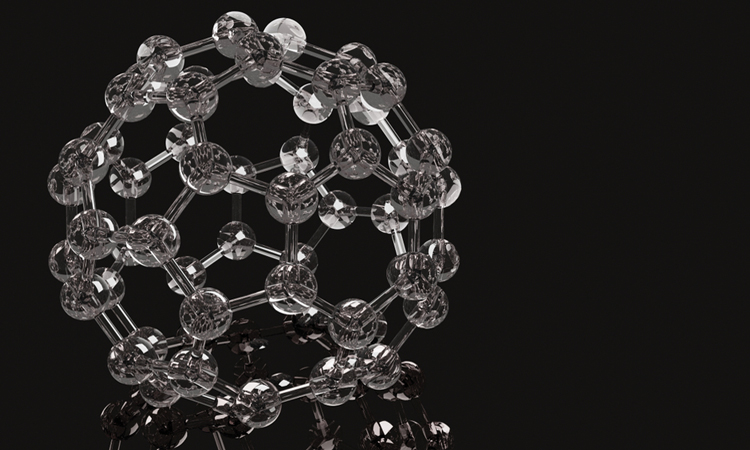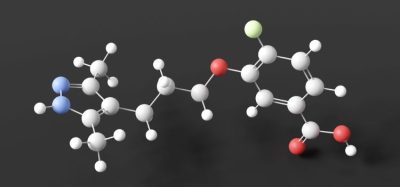Scientists propose method of producing water-soluble fullerene compounds
Posted: 18 March 2020 | Victoria Rees (European Pharmaceutical Review) | No comments yet
A new single-step technique has been developed which could enable the synthesis of water-soluble fullerene compounds for use in pharma.


Researchers have developed a single-step method to obtain water-soluble fullerene compounds with significant biological properties, such as the ability to effectively suppress HIV.
The new method enables a high yield of nearly 100 percent and does not require lengthy and labour-consuming chromatographic purification”
Uncommon molecular forms of carbon, C60 and C70 fullerenes are respectively shaped as a football and rugby ball, depending on the number of atoms in the molecule. Fullerene-based compounds have long been believed to provide a good ground for new drugs thanks to their strong antiviral, antibacterial, antitumor and antioxidant effects.
However, fullerenes are totally insoluble in water, which prevents their use in medicine. The existing classical methods of synthesis of water-soluble compounds directly from fullerenes provide low product yields through several complex stages of synthesis. Therefore, these methods are inefficient and are unsuitable for industrial-scale production of water-soluble fullerene compounds for pharmaceutical applications.
Now, scientists from the Skoltech Center for Energy Science and Technology (CEST) in Russia and the Institute for Problems of Chemical Physics of Russian Academy of Sciences in collaboration with researchers from the Catholic University of Leuven, Belgium, have proposed an effective single-step method to produce stable water-soluble fullerene derivatives displaying high anti-HIV activity. The researchers report that Friedel–Crafts arylation of chlorofullerenes C60Cl6 and C70Cl8 with unprotected carboxylic acids was effective for creating their compounds.
The new method enables a yield of nearly 100 percent and does not require lengthy and labour-consuming chromatographic purification, which they say opens up new horizons for synthesising fullerene derivatives on any scale to suit the needs of the pharmaceutical industry.
“Although high antiviral activity of fullerene derivatives was discovered over 20 years ago, these unique compounds are too difficult to obtain and for this reason have been unavailable for clinical trials. We hope that our simple single-step method of synthesising water-soluble fullerene compounds will help to solve this issue and take us one step closer to creating effective antiviral drugs on their basis,” says the first author of the paper and Skoltech PhD student, Olga Kraevaya.
The study was published in Chemical Communications.
Related topics
Drug Development, Drug Manufacturing, Ingredients, Manufacturing, Research & Development (R&D)
Related organisations
Catholic University of Leuven, Institute for Problems of Chemical Physics of Russian Academy of Sciences, Skoltech Center for Energy Science and Technology (CEST)









